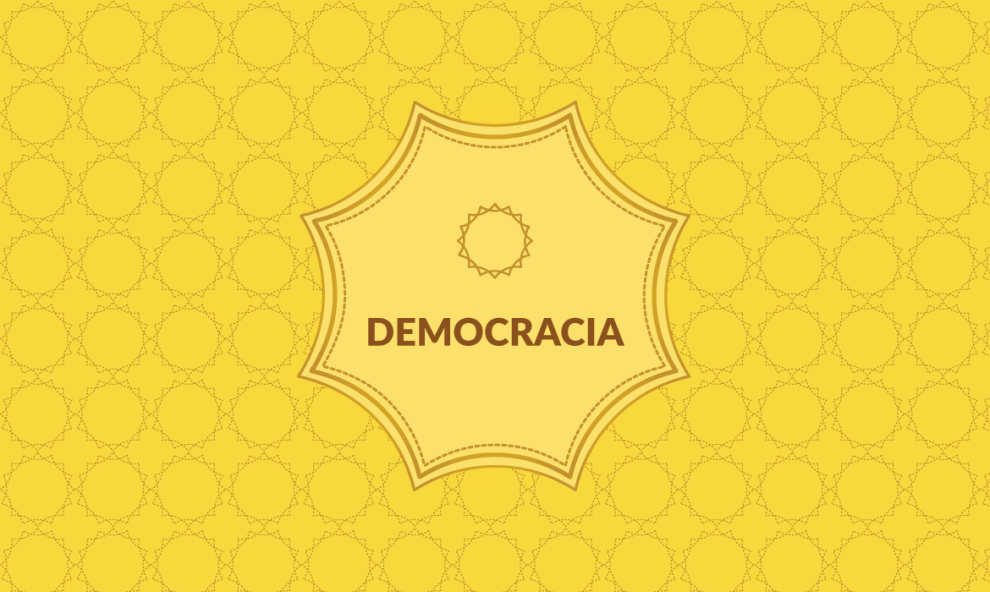In some philosophical circles, there is an old debate on the efficacy of a long-standing mode of Chinese execution denominated ling chi, death by thousands of little cuts. Whatever the effect of ling chi on Mexican politics might be, our democratic system suffers from innumerable problems. We went from a centralized and semi-authoritarian regime to a process of democratic forms but ones without the contents of a democracy. There are thousands of opinions on the Mexican transition and its future: from those who affirm that the transition has already ended to those who consider it not to have even begun. Some are interested parties, motivated by mere political calculation, but others, on both sides of the spectrum, reflect contrasting visions that are equally respectable.
More than democracy, the demonstrations in the Arab nations in recent months have permitted an interesting discussion to blossom forth: the questions that arise from people expressing their opinions, arguing, and make proposals concern the manner in which to launch a citizen movement in a consolidated democracy, how to afford functionality to a political system in which the historical mechanisms of power centralization and population control no longer operate, how to construct the institutional framework that allows for the participation of the population and that renders the demands preceding the change of regime effective. In a word, the discussion –in Arab as well as in Western media- has concentrated precisely on the type of questions that we Mexicans have been discussing for decades.
Churchill observed that “democracy is the worst form of government except for all those other forms that have been tried from time to time”. What Churchill did not explain was the mystery of how to arrive at the point at which democracy functions effectively as a system of government as well as a mechanism of representation. For example, elections have achieved representation of the diverse political forces in the legislative organs, but that does not necessarily mean that the population feels that it is represented or that we possess a functional system of government. The tension between these two factors –representation and effectiveness- lies at the very heart of democracy.
Of the many texts that I read on the changes in the Arab World, one caught my eye because it offered a distinct viewpoint on democratic complexity. The quote, anonymous, is from an Egyptian diplomat residing in a Western capital city who relates what he has learned after years of living outside of his country. “Democracy, the quote reads, is in fact a strict dictatorship, since each citizen is his own dictator. The citizen imposes upon himself a strict etiquette: not to push; not to steal; not to harass women and girls; not to harm or insult others; to stop at a red light even if it’s three o’clock in the morning; not to cheat in business; to hold the door open for the person behind you; to stand in line; not to behave in a socially unacceptable manner; and other such dos and don’ts which the citizen in a democratic society is obligated to abide by at every moment. He upholds these rules not out of fear of the regime (which is in no way intimidating), but out of self-discipline and conviction that only thus can a society run smoothly”*.
From this perspective, a democratic society is based not on coercion but, instead, on each citizen’s self-control that, on being practiced by the society as a whole, permits a life of freedom and comfort. It is, states the diplomat, an unwritten contract among all citizens to accept the rules of behavior in all aspects of life: in the street; when driving; in the economy, and in the family. The diplomat affirms that in his country, “there is no such social contract: no rules, no laws, no restraints and no self-dictatorship. Each person does as he chooses at any given moment with no self-restraint or consideration for others, unguided by even the most basic rules of conduct. A red traffic light is a mere recommendation; bribery is the norm; anyone can build what he wants where he wants; any manager can appoint his sons, daughters and brothers-in-law to any position under him, irrespective of their qualifications; and resorting to violence against the weak is widely prevalent. The individual feels free to act on his impulses and is not required to answer for his actions and misdemeanors”. Sound familiar?
The difference between a democratic and participative and a centralized and authoritarian, system is evident. But the crucial difference, what attracted me to the argument of this diplomat, lies in the contrasting manner in which the citizen behaves. In a democratic ambience, the citizen assumes his responsibility as a central factor of the functioning of the social complex, while in an authoritarian, or simply a non-democratic, system, the citizen assumes no responsibility at all. Citizens respond to the rules of the game. When the rules reward the rule of law and penalize any conduct that violates this, the citizen adapts and adopts these rules as his own. From the moment that this happens, we find the consolidation of what the Egyptian diplomat terms “a strict dictatorship in which each citizen is his or her own dictator.” As long as there are no clear rules with which to comply and that require compliance, we are more like Egypt than like a modern and democratic nation.
For those who affirm that the Mexican transition is already over, the small issue of the entire citizenry remains pending. To some extent, this is analogous to which came first, the chicken and the egg, but perhaps the essence is simpler: while the citizenry does not perceive a basic change in the nature of the government and the system in its entirety, the sole difference, which is not a minor one, between the old and the current system, is that there are much broader degrees of individual freedom. What is needed is a regime of legality.
Mexico is afflicted with open and latent conflicts. The absence of democratic rules that all citizens (including, obviously, political parties and politicians) make their own, as in a self-imposed dictatorship, explains in great measure why the conflicts become deeper rather than become resolved. The incomplete Mexican democracy finds itself besieged by those who are desperate for solutions. The good news is that it is impossible to rebuild the old system; the bad news is that there is no guarantee that it is advancing toward an integral democracy, the dictatorship alluded to by the Egyptian attaché.
*Begin-Sadat Center for Strategic Studies, BESA Paper No. 131.
Pact and Democracy






Comments